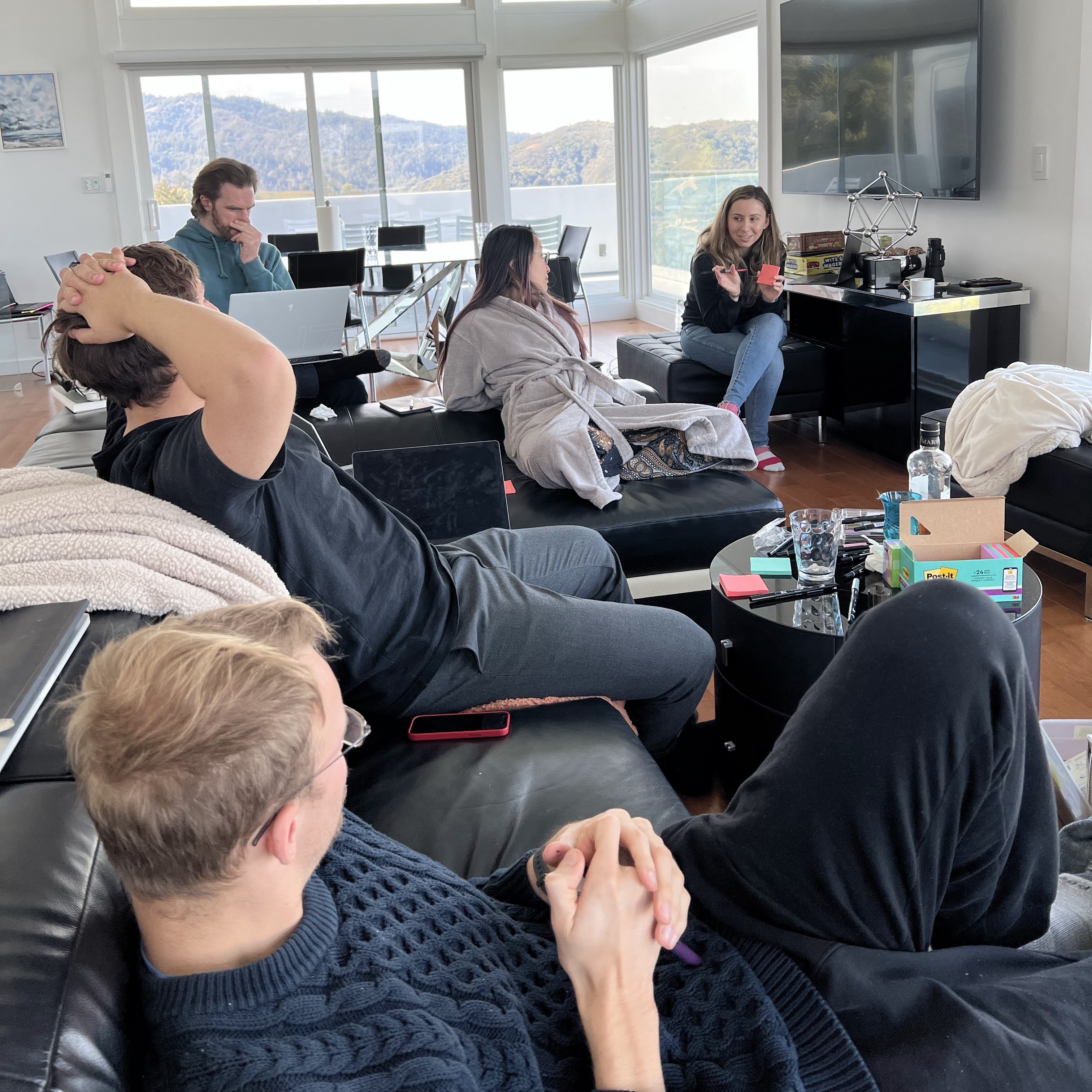At a mere 6 years old, Ellie had a clear sense of what she wanted to do with her life. “I wanted to be an astronaut-slash-ballerina. Gradually, astronaut turned into astronomer, though I would still love to be an astronaut,” Ellie laughed. “I always really loved space and astronomy.”
Ellie’s love for space and astronomy led her to physics, which was her focus through high school. As someone who spent the better part of life sampling career paths, I was curious why Ellie was so certain that physics was the path for her. “At a very young age I was experiencing some existential questions like, ‘What is our place in the universe? What is reality?’ Physics was my way of dealing with that confusion.”

Ellie studies physics at Stanford and UC Berkeley
Confident in her goal, Ellie went on to study physics as an undergraduate at Stanford University before pursuing a PhD in physics at UC Berkeley. “I wanted to do physics, and I realized that meant I would probably have to get a PhD, and I would probably be a professor or something. In a way, I had my whole life planned out from a very young age.”
But as a graduate student, Ellie started to feel that something was amiss. “The biggest problem for me was that I wasn’t excited about the day-to-day of doing research in my field. There was this cognitive dissonance because I was so interested in the field and loved it so much. But the day-to-day was actually kind of uninspiring.”
Ellie had grown up with a romantic view of what it meant to “do science”, and physics research didn’t scratch that itch for her. “I used to think, ’Oh, I can just sit here and think deeply and come up with a novel idea that no one’s ever thought of before.’ And that just wasn’t true in physics because so many smart people have been in this field since like 500 BC.”
Ellie explores AI research at OpenAI
By the time she finished graduate school, Ellie was ready to move on. “It was a slow motion crisis. I started thinking about it halfway through grad school, and by the time I got to the end, I’d accepted that I wasn’t happy with what I was doing and wanted to do something else.” Naturally, it wasn’t easy to take off the rose-tinted glasses that Ellie had viewed physics research through her whole life. “It was hard to accept because I’d been planning to be a physicist for so long. There was almost a period of grief that I went through.”
But Ellie felt motivated to find a new path. After talking with researchers in other fields, she realized that AI research was a real career path—one that hadn’t really existed when she was younger—and it immediately appealed to her. She applied to the OpenAI residency program and was accepted. “It was really, really fortunate. It definitely helped me a lot.”
To my surprise, Ellie felt that her transition from the world of physics to AI was relatively easy. “AI knowledge is very broad but less deep, in my opinion. So you can jump into any subfield and get up to speed pretty quickly.” The biggest challenge Ellie faced was learning how to be a proper software engineer. “I think there’s definitely a delta between what you would consider a good programmer in science versus a good programmer in actual computer science.”
At the end of her residency, Ellie felt a new sense of purpose and inspiration. “I came out of it thinking, ‘I’ve learned that I do want to do AI research, and it is what I was hoping it would be.’” She went on to explain, “In AI, you actually can sit and think deeply and come up with something that no one’s thought of before because there’s so much that people haven’t had a chance to think about yet.” It seemed Ellie had found that feeling that was missing from her physics research. “I felt really happy and creative and full of ideas and possibilities. I just felt very energized and inspired.”
Ellie learns about a new AI research company
In 2021, an agency recruiter contacted Ellie and told her about a brand new AI research company called Imbue. She visited the website, and despite feeling slightly dubious that it was a real company, something about the single paragraph on their site resonated with her. So she jumped on a call with the two cofounders, Kanjun Qiu (CEO) and Josh Albrecht (CTO).
On the call, Kanjun and Josh explained their approach to AI research, which Ellie felt was more scientific yet creative than other companies. “I remember thinking, ‘That’s fun and different.’ And I like fun and different,” Ellie smiled. “I said to myself, ‘This is the weirdest thing you’re going to get. You should definitely do it. When else am I going to get an opportunity to do that?’”
Within about a week, Kanjun and Josh convinced Ellie to join as the sixth employee of Imbue. “I felt so much confidence and trust in them when I met them. I was uncertain about what this was all gonna be about, but I was just excited to go for the ride. It was kind of love at first sight.”

Ellie does AI research at Imbue
Now, two years later, Ellie is a member of Imbue’s growing research team where she is exploring new and better ways to evaluate language models. Hearing her talk about her work at Imbue, I could feel her passion, excitement, and joy. “I really enjoy breaking problems down into their most atomic units and then using that to come up with a solution.” Ellie believes that this approach is what makes Imbue unique as an AI research company. “It’s so special and rare to care a lot about getting the questions right, doing the foundations well.”
When I asked why she thinks Imbue is so unique in this regard, Ellie immediately responded, “Research incentives in general are so broken, right? Your goal is just to publish papers or create products.” In addition to a broken incentive system, Ellie believes that the difference also has to do with time horizons. “If you’re a long-term strategist, then this is the way to do it—you have to think about the questions and the formulation. If you’re more of a short-term strategist, then that’s not the way to go.”
About some of her other favorite aspects of Imbue, Ellie said, “It’s got the exciting fast turnaround, high productivity of a startup, but there’s also a lot of intellectual freedom and a lot of agency—things that I associate more with academic settings. It’s the best of both worlds, I think. Everyone’s pointed in the same direction, and we all collectively decide on projects. We have to get buy-in from other people, but we also get a say in it, and we get to propose things. We’re not just cogs in the machine, but we’re also not free to do whatever we want at any time. So I think you get more done because there’s leadership and cohesion, but you also get a lot of agency.”
Imbue doesn’t require advanced degrees or prior ML-experience to be a researcher/engineer on the team. If you want to get involved in cutting edge AI research, we’re hiring!